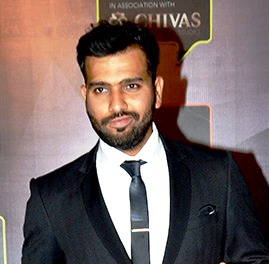A Quote by Neil Gaiman
Writer advice... Write. Finish things. Go for walks. Read a lot & outside your comfort zone. Stay interested. Daydream. Write.
Related Quotes
The best advice I can give on this is, once it's done, to put it away until you can read it with new eyes. Finish the short story, print it out, then put it in a drawer and write other things. When you're ready, pick it up and read it, as if you've never read it before. If there are things you aren't satisfied with as a reader, go in and fix them as a writer: that's revision.
I would give them (aspiring writers) the oldest advice in the craft: Read and write. Read a lot. Read new authors and established ones, read people whose work is in the same vein as yours and those whose genre is totally different. You've heard of chain-smokers. Writers, especially beginners, need to be chain-readers. And lastly, write every day. Write about things that get under your skin and keep you up at night.
My advice for aspiring writers is threefold.First, read as much as possible, both within and outside the genre you arem working in. By reading you hone your internal ear for style. Second, write. Everything comes down to it; unless you write, you are not a writer. Third, submit your work. But - stop chasing every seductive new market out there, and stop trying to write for the tastes of specific established professional markets and editors. That way lies mediocrity and eventual
dissolution of your true voice, no matter how embryonic or pronounced it may be now.
For me writing is a long, hard, painful process, but it is addictive, a pleasure that I seek out actively. My advice to young writers is this: Read a lot. Read to find out what past writers have done. Then write about what you know. Write about your school, your class, about your teachers, your family. That's what I did. Each writer must find his or her own kind of voice. Finally, you have to keep on writing.
Leaders should get out of their comfort zone but stay in their strength zone. When their work lies within their natural gifting and strengths, leaders experience the greatest return in productivity and contentment. Life is too short to live in the comfort zone, where growing and accomplishing and achieving your potential takes a back seat. I suggest you refocus if the comfort zone is your leadership priority.
When I was a kid and a young man I read everything. When I was about 23, I was incredibly lucky in that I wound up with several book review columns, which meant that I had to read huge amounts of stuff that was outside my experience and outside my comfort zone. I think every young writer should be forced to read the kind of stuff they would not normally read for pleasure.
I never learned to be a writer. I never took screenwriting courses. I never read anyone's scripts. As a writer, my only guiding principle has been to write about things that scare me, write about things that make me feel vulnerable, write about things that will expose my deepest fears, so that's how I write.
My biggest bits of advice are, write as much as you can, finish what you start, get a thick skin, don't take crap from anyone, but also live your life and have fun. The stereotype of a writer holed up alone all day is really unhelpful. You can't write real people and real emotion if you don't let yourself experience them.

































